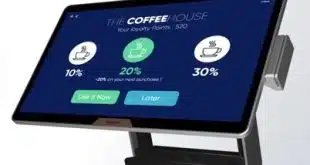Merchants face relentless and ever-changing attempts to make fraudulent online transactions, but measuring the effectiveness of rules in place to counter those attempts takes time.
Now, CyberSource, a unit of Visa Inc., is offering a service called Decision Manager Replay that lets merchants test various anti-fraud measures for online transactions without waiting weeks or months to see how well they work.
Quickening that evaluation is essential as the pace of fraud intensifies, says Andre Machicao, CyberSource and PlaySpan senior vice president. “Even with the best fraud-management tools the inherent nature of monitoring for fraud and allowing the data to mature, specifically chargeback data, may take one, two or three months,” Machicao tod Digital Transactions News Wednesday at the Merchant Risk Council conference in Las Vegas. CyberSource parent Visa bought PlaySpan Inc., a payment processor for digital-goods purchases, for $190 million in 2011.
The new service, which is part of CyberSource’s Decision Manager tool, works by allowing the merchant to create a new set of rules and procedures it wants to test, Scott Boding, CyberSource senior director of risk solutions, tells Digital Transactions News. “They can play historical transactions and it allows them to re-simulate them,” Boding says. Merchants then can see how changes they might make to their anti-fraud measures could affect their actual transactions.
Retailers will need tools, such as Decision Manager Replay, to keep pace with criminal activity and changing consumer behavior as more and more consumers use mobile devices.
“You have to differentiate mobile and adopt mobile-specific tools,” Aaron Press, LexisNexis Risk Solutions director of retail, e-commerce, and payments, tells Digital Transactions News. More and more retailers and vendors are talking about the need to treat mobile differently, he says.
For example, a merchant may not need to use the same data for a mobile payment that it would for an e-commerce transaction, says Klas Back, general manager of international and payment strategy at Braintree, a unit of PayPal Inc. Ideally, that will translate into a simpler payment experience, he says.
The EMV liability shift scheduled for Oct. 1 also is top-of-mind for many in payments. Some suspect that card-not-present fraud will increase as fraud at the point of sale becomes tougher to accomplish because of EMV chip cards, which are difficult to counterfeit.
“It’s not the liability shift that’s critical,” says Press. “It’s when the [card] reissuance really hits. It’s not until those non-counterfeitable cards become mainstream that you’ll see that shift.” He predicts card-not-present fraud will experience a slow, steady rise. “We will see it over months and years.”
The U.S. payments industry, however, is better protected against this expected increase than some other industrialized nations that recently converted to chip cards, like Canada. “The tools are better than they were in other EMV markets at the time they implement it,” Press says.






